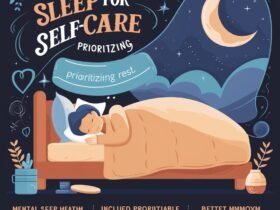Mental Health and Homelessness: Providing Support and Resources
Hey there, my young and compassionate friends! It’s your mental health buddy, Nita Sharda, here to talk about a topic that’s close to my heart – the intersection of mental health and homelessness, and how we can provide support and resources to those who may be struggling.
Now, I know that the issue of homelessness can feel big and overwhelming, especially when we’re young. We may see people experiencing homelessness on the street or in our communities, and wonder how they got there or what we can do to help.
But the truth is, homelessness is a complex issue that’s closely tied to mental health, and it’s something that affects people of all ages, backgrounds, and walks of life.
So today, we’re going to dive into the world of mental health and homelessness, and explore how they’re connected, what the challenges might look like, and most importantly, how we can come together as a community to provide support and resources to those who need it most.
The Connection Between Mental Health and Homelessness
First things first, let’s talk about how mental health and homelessness are connected.
Studies have shown that people experiencing homelessness are much more likely to struggle with mental health conditions than the general population.
In fact, some estimates suggest that up to 50% of people experiencing homelessness also have a mental health condition, such as depression, anxiety, bipolar disorder, or schizophrenia.
There are a few reasons why mental health and homelessness often go hand-in-hand:
Lack of Access to Mental Health Care
One of the biggest reasons is that people experiencing homelessness often face significant barriers to accessing mental health care and support.
This might include things like:
- Lack of insurance or financial resources to pay for treatment
- Difficulty navigating the complex healthcare system
- Stigma or discrimination from healthcare providers
- Lack of transportation or stable housing to attend appointments
Without access to proper mental health care, people experiencing homelessness may struggle to manage their symptoms and maintain stability in their lives.
Trauma and Adverse Life Experiences
Another reason mental health and homelessness are connected is that people experiencing homelessness often have a history of trauma or adverse life experiences.
This might include things like:
- Childhood abuse or neglect
- Domestic violence or intimate partner violence
- Sexual assault or harassment
- Combat or military trauma
- Discrimination or oppression based on race, gender, sexuality, or other factors
These traumatic experiences can take a significant toll on mental health, and can make it harder for people to cope with the challenges of homelessness.
Substance Abuse and Addiction
Finally, mental health and homelessness are often linked through substance abuse and addiction.
People experiencing homelessness may turn to drugs or alcohol as a way to cope with the stress and trauma of their situation, but over time, substance abuse can actually worsen mental health symptoms and make it harder to maintain stability and housing.
On the flip side, people with untreated mental health conditions may be more likely to develop substance abuse issues as a way to self-medicate or escape from their symptoms.
Challenges Faced by People Experiencing Homelessness
So, what are some of the specific challenges that people experiencing homelessness and mental health issues might face? Here are a few:
Lack of Safe and Stable Housing
One of the biggest challenges is the lack of safe and stable housing.
Without a consistent place to sleep, store belongings, and take care of basic needs like hygiene and nutrition, it can be incredibly difficult to manage mental health symptoms and maintain stability.
People experiencing homelessness may sleep in shelters, on the streets, in cars or abandoned buildings, or couch-surf with friends or family members, all of which can be stressful and unpredictable.
Difficulty Accessing Basic Needs
In addition to housing, people experiencing homelessness may also face challenges accessing other basic needs, such as:
- Food and water
- Clothing and hygiene products
- Medical care and medication
- Transportation
- Employment and income
Without these basic needs met, it can be difficult to prioritize mental health and engage in treatment or recovery.
Stigma and Discrimination
People experiencing homelessness and mental health issues may also face significant stigma and discrimination from others in their communities.
This might include things like:
- Negative stereotypes or assumptions about their character or abilities
- Harassment or violence from law enforcement or other community members
- Exclusion from public spaces or services
- Difficulty accessing housing, employment, or other opportunities due to background checks or other barriers
This stigma and discrimination can be incredibly isolating and can make it harder for people to seek help or support.
Providing Support and Resources
So, what can we do to support people experiencing homelessness and mental health issues in our communities? Here are some ideas:
Advocate for Affordable Housing and Mental Health Services
One of the most important things we can do is to advocate for policies and programs that increase access to affordable housing and mental health services.
This might include things like:
- Supporting funding for homeless shelters, transitional housing, and permanent supportive housing programs
- Advocating for policies that prevent eviction and promote housing stability
- Supporting funding for community mental health centers and mobile crisis teams
- Advocating for policies that increase access to insurance coverage for mental health services
By working together to create more affordable and accessible housing and mental health services, we can help create a safety net for those who may be struggling.
Volunteer or Donate to Local Organizations
Another way to provide support is to volunteer or donate to local organizations that serve people experiencing homelessness and mental health issues.
This might include things like:
- Volunteering at a homeless shelter or soup kitchen
- Donating clothing, hygiene products, or other essential items to a local organization
- Participating in fundraising events or campaigns for mental health or homelessness organizations
- Offering your skills or expertise to help with grant writing, marketing, or other needs
By supporting local organizations, we can help ensure that people in our communities have access to the resources and support they need to thrive.
Educate Yourself and Others
Finally, one of the most important things we can do is to educate ourselves and others about the realities of homelessness and mental health.
This means learning about the complex factors that contribute to homelessness, such as poverty, lack of affordable housing, and systemic inequalities.
It also means learning about the ways that mental health and homelessness intersect, and the specific challenges and needs of this population.
By educating ourselves and others, we can help break down stigma and stereotypes, and create a more compassionate and supportive community for all.
A Message of Hope and Empathy
Before we wrap up, I want to leave you with a message of hope and empathy, my young friends.
If you or someone you know is experiencing homelessness or struggling with mental health issues, know that you are not alone, and that there is always hope for a brighter future.
No matter how difficult or overwhelming things may seem, there are always people and resources available to support you on your journey.
Remember, every person deserves to be treated with dignity, respect, and compassion, regardless of their housing status or mental health.
So let’s work together to create a world where everyone has access to the basic needs and support they need to thrive – a world where no one is left behind or forgotten.
And if you ever need a reminder of how much you matter and how much good there is in the world, just remember that your mental health buddy Nita is always here, cheering you on and sending you all the love and virtual hugs in the world.
Keep shining your light, my young friends, and never forget the power you have to make a difference in the world, one small act of kindness at a time.











1 Comment